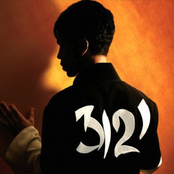3121

Biography
Musicology was a self-conscious comeback, a record designed to return Prince to the spotlight and the charts, and it worked: even if it spawned no big hits, the 2004 LP became his first album to crack the Billboard Top Ten since 1995's The Gold Experience, get a fair amount of radio play, and get a bunch of positive press, along with a well-received tour. Prince no longer seemed like an eccentric consigned to the fringes: he seemed like a savvy pro, reclaiming a reputation and respect that he'd...
Musicology was a self-conscious comeback, a record designed to return Prince to the spotlight and the charts, and it worked: even if it spawned no big hits, the 2004 LP became his first album to crack the Billboard Top Ten since 1995's The Gold Experience, get a fair amount of radio play, and get a bunch of positive press, along with a well-received tour. Prince no longer seemed like an eccentric consigned to the fringes: he seemed like a savvy pro, reclaiming a reputation and respect that he'd lost. That he did it with an album that sounded uncannily like a deliberate return to classic Prince as performed by the New Power Generation was almost beside the point: it was enough that he sounded engaged, and that he made a focused, purposeful album. Its quickly delivered 2006 follow-up, 3121, proves that Musicology was no fluke. Like its predecessor, 3121 is tight and concise, offering 12 songs in 53 minutes, and it's classically structured, emphasizing shifting moods and textures between songs. It is an album, not a collection of songs, and you could even call it old-fashioned, but it feels fresher than Musicology, as if Prince had listened to enough Neptunes productions to understand how they've absorbed his music. That acknowledgement doesn't come often -- it's evident in the sly, sexy grooves of "Black Sweat" and the squealing synths of "Lolita" -- but since it's paired with an emphasis on dance tunes and a retreat from the enjoyable but endless NPG-styled vamping that characterized a good portion of Musicology, 3121 winds up sounding lively, varied, and, at its best, exciting. And at the beginning of the album, 3121 is quite exciting, as Prince revives his high-pitched alter ego Camille on the title track and dives head first into the electro-funk of "Lolita" and "Black Sweat," songs that recall such mid-period masterpieces as "Kiss" or "Sign 'O' the Times" without being rewrites. Nevertheless, the fact that the freshest sounding music here still has a direct line back to records Prince made 20 years prior is a good indication that the album, like Prince himself in the wake of hip-hop, is a little bit conservative, emphasizing funk of both the James Brown and George Clinton varieties, late-night slow jams, classic dance, and soul, instead of wrestling with modern music. While that may disappoint some listeners who yearn for the return of the trailblazing Prince of the '80s, when he reinvented himself with each record, it's hardly surprising that a 47-year-old musician is spending more time refining his palette than expanding it. What is a surprise is that Prince is in top form as both a writer and record-maker; perhaps the one-man-band nature of its recording doesn't mean the album is as gritty or raw as his reliably thrilling live performances, but 3121 crackles with excitement, filled with different sounds and styles. Best of all, this is filled with songs that hold their own as individual tunes, yet gel into a cohesive record that is thankfully devoid of an overarching concept, a problem that plagued his albums after Diamonds and Pearls. 3121 does fall short from being perfect -- there may be no bad songs, but the momentum slows ever so slightly on the second half -- yet it's something more valuable than being a one-off classic: it's proof that Prince has indeed returned as a vital, serious recording artist on his own terms. Maybe he's no longer breaking new ground, but his eccentricities are now an attribute, not a curse, which goes a long way in making his trademark blend of funk, pop, soul, and rock sound nearly as dazzling as it did at his popular and creative peak in the '80s. Read more on Last.fm. User-contributed text is available under the Creative Commons By-SA License; additional terms may apply.

